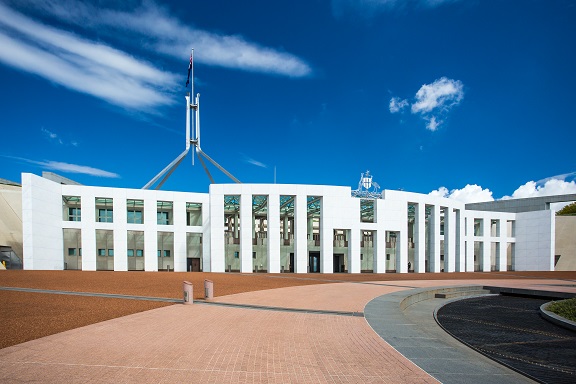
by Craig Sullivan | Sep 19, 2024 | Media Release
Westpac economist Ryan Wells said that manufacturers are finding some pockets of demand amid a tough backdrop for the broader economy and lingering supply-side challenges within the sector.
“The Westpac-ACCI Actual Composite gathered momentum moving into the second half of the year, lifting from 54.6 in June to 56.0 to September.
“Having moved above the breakeven threshold of 50, conditions are beginning to show signs of improving in the manufacturing sector. The September survey reported an ongoing recovery in new orders, a consolidation in output and a bounce in overtime, but a decline in employment.
“Growth in new orders was firmer than expected, with a net 20% of firms reporting a rise in September, following a net 21% in June.
“Output growth was little-changed over the same period however, with a net 14% of firms reporting an increase. Firms are drawing on inventory stocks to meet demand, but in a context where output is less responsive, order backlogs are growing.
“Firms responded to the resilience in new orders via an increase in overtime. The latest survey found a net 11% of firms increased overtime in September, and a net 12% of firms are also looking to increase the size of their workforce over the next three months.
“The Expected Composite was virtually unchanged however, ticking down slightly from 53.0 in June to 52.9 in September, indicating firms expect demand conditions to improve at a modest pace. Partially offsetting this, supply-side issues remain a key concern of manufacturers.
“The survey finds that cost pressures facing manufacturers remain acute and incredibly volatile. In September, a net 51% of firms reported a rise in average unit costs. That is well above the average net 19% that reported an increase over the ten years prior to the onset of the pandemic.
“Manufacturers have little scope to pass on rising costs to consumers. The net 26% of manufacturers reporting a rise in prices remains well below the net proportion of those reporting an increase in costs, implying some degree of ongoing margin squeeze in the sector.
“Additionally, a net 13.1% of respondents indicated that labour was more difficult to find in September. That is consistent with the evidence on the relative factor limitations to production, which find that both ‘labour’, and also ‘materials’, are still seen as a much larger constraint on output compared to pre-pandemic norms.
“The mood of manufacturers about the general business outlook for the next six months improved but remains deeply pessimistic. Those expecting a deterioration outnumber those expecting an improvement by a net 35% in September compared to a net 42% in June.
“Having faced persistent headwinds around labour availability and cost pressures, manufacturers are developing a clear appetite for capacity expansion.
“The latest survey found that investment intentions forged ahead to a historic high, dating back to 1966, with a net 36% and 22% of respondents intending to increase investment spending on equipment and buildings respectively, over the next twelve months.
ACCI chief executive officer Andrew McKellar said the survey highlights once again the challenges and costs of doing business.
“While manufacturers may be experiencing pockets of opportunity, the growth in new orders is modest,” Mr McKellar said.
“On just about every category which makes up the index, results are still well down on pre-pandemic levels.
Mr McKellar said the data also corresponds with recent results from the national accounts.
“Persistent and sticky inflation continues to elevate the cost of doing business.
“Manufactures are experiencing further increases in input and labour costs but have limited ability to pass on these costs through higher selling prices, so profit margins continue to be squeezed.”
Mr McKellar said more needs to be done to bring down inflation to reduce the pressure on business.
“Fiscal policy at both the state and federal level must work in tandem with monetary policy to ensure inflation is brought down in a reasonable timeframe.
Mr McKellar also said recent changes to workplace laws and the additional regulation those changes bring are impacting productivity.
“There needs to be a greater focus on lifting productivity.
“This should include re-examining the recent changes to industrial relations that have made workplaces less flexible and taken us back to the 1980s.
“There also needs to be a discussion around reforming the tax system to make it fitter for purpose and reducing red tape which is strangling business.”
Read the full report here

by Craig Sullivan | Sep 18, 2024 | Media Release
The Australian Chamber of Commerce and Industry (ACCI) said the design details of the payday superannuation policy revealed today do not offer enough support for small business to comply with the new obligations.
Australia’s largest and most representative business network says while it supports the principle of payday super, the policy as it stands will create another layer of red tape for small businesses.
ACCI chief executive officer Andrew McKellar said the notion of payday super is sound, but the delivery and implementation as announced by the federal government falls short of the mark.
“The business community supports the move to payday super and sees benefits for both the employer and the employee in better aligning superannuation to wages,” Mr McKellar said.
“However, we are concerned the government has not given enough consideration to the pressures small businesses are facing right now,” Mr McKellar said.
He cites the proposed removal of the Australian Taxation Office’s Small Business Superannuation Clearing House as an example.
“While this facility is not operating as it should, it is a valuable tool for many small businesses who simply do not have the time or resources to process superannuation payments any other way.”
ACCI’s 2024 Small Business Conditions Survey revealed that over 40 per cent of small businesses were not even aware of the forthcoming changes to their superannuation requirements.
“As the government pushes ahead on their self-imposed deadline of 1 July 2026, it must work to better inform small businesses, so they have the support in place to comply with their increasing obligations,” Mr McKellar said.
ACCI however does welcome some of the key proposals announced today.
“The due date of seven calendar days after payday for contributions to arrive in the employee’s superannuation fund is a welcome compromise, with the government initially suggesting a three-day requirement,” Mr McKellar said.
“Digitalisation of the payroll system has made it easier for businesses to better align their payroll and superannuation payments, so these changes will be more workable than they otherwise may have been.”
ACCI says it will continue to engage with the government and others on how to best implement these changes with as minimal burden to small businesses as possible.

by Craig Sullivan | Sep 17, 2024 | Media Release
The Australian Chamber of Commerce and Industry (ACCI) congratulates the Australian Government on securing a free trade agreement with the United Arab Emirates (UAE).
ACCI chief executive officer, Andrew McKellar said this is a watershed moment for Australia’s engagement with the Middle East and in advancing Australia’s trade diversification agenda.
“We congratulate the Australian Government on delivering an agreement with trade and investment at its core.
“At a time where economic growth is needed, opening new opportunities to expand trade and investment linkages with the UAE is positive for Australian business.
“The UAE is an important regional and global hub for transport and logistics, the services sector and goods trade. It ranks in the top 20 partners for Australia in both imports and exports.
“The UAE also promises to be an important investment partner as we develop our resources, with all the jobs that entails for Australians and the net zero transition.
“Last year’s ACCI National Trade Survey has showed that expanding ties with the UAE is a priority for Australian traders.
“It’s great to see the government heed the call and do what’s right for the Australian economy,” said Mr McKellar.

by Craig Sullivan | Sep 12, 2024 | Media Release
The Australian Chamber of Commerce and Industry (ACCI) welcomes the federal government’s first tranche of reforms to the Privacy Act.
ACCI, Australia’s most connected and largest business network, also welcomes the decision of the Attorney-General to continue consulting with stakeholders on more far-reaching aspects of the proposed reforms.
ACCI’s chief executive officer, Andrew McKellar said today was a positive development as business navigates the increasing use of artificial intelligence in the economy.
“These proposed measures, such as requiring information to be provided about automated decision-making, are going to be valuable to create trust among individuals and business users,” Mr McKellar said.
“We particularly welcome the measured decision of the government to continue consulting with industry on other aspects of the reforms, especially the proposed removal of the exemptions for small business and employee records.
“These provisions need a considered approach, as they are going to have profound implications for businesses of all sizes across Australia and will be most keenly felt by small businesses.”
In response to the ACCI’s 2024 Small Business Conditions survey, two thirds of small businesses said they were not aware of the forthcoming changes, with just eight per cent considering themselves ready to comply with speculated changes.
Mr McKellar highlighted that small businesses are under a great amount of pressure stemming from high costs of doing business, and an increasingly complex and burdensome regulatory landscape.
“The reforms to the Privacy Act can do a lot of good for businesses, when it comes to building trust in digital technologies, and enabling more seamless cross-border data flows, which is vital for our trade with other countries,” he said.
“But the Act must also be accessible, fit-for-purpose, and be accompanied by clear, user-friendly guidance on how it is to be applied.
“Business stands ready to support the government by communicating the changes to our business network and supporting all businesses in complying with the new rules as seamlessly as possible,” said Mr McKellar.

by Craig Sullivan | Sep 12, 2024 | Media Release
The Australian Chamber of Commerce and Industry (ACCI) says it’s alarmed by revelations the federal government is negotiating with the Greens over its ‘Nature Positive’ Bill which would see a climate trigger used to stop new mineral projects.
Australia’s best connected and largest business network says a climate trigger would place a major hand brake on new mining and energy projects and injure the Australian economy.
ACCI chief executive officer Andrew McKellar says businesses are already having to clear multiple hurdles of regulation and green tape to get projects approved.
“A climate trigger will duplicate regulations on business that are already making substantial efforts to reduce their emissions,” Mr McKellar said.
“It will create a further barrier to new investment and force more industries to leave our shores.
“There are already numerous pieces of legislation to mitigate the impact of climate change, including the Climate Change Act, National Greenhouse and Energy Reporting Scheme and the Safeguard Mechanism Reforms.”
Mr McKellar is urging the two major parties to work together to achieve a sensible outcome.
“To flirt with the Greens as a means of getting legislation through is like playing a game of chicken with our economy.
“I shudder to think what sort of regulation would be placed on the table if the Greens strike a deal over the ‘Nature Positive’ legislation.”

by Craig Sullivan | Sep 9, 2024 | Media Release
A new report by Australia’s largest and most representative business network has highlighted the opportunity that AI adoption can bring including productivity benefits, efficiencies and flexibility for business and workers.
The report by the Australian Chamber of Commerce and Industry (ACCI) is called ‘Accelerating the Potential of AI in Business’ and explores the potential of AI and considers key steps to address existing gaps and managing risks.
ACCI’s chief executive officer Andrew McKellar says the report seeks to provide some insights and simple principles to guide businesses and help them capitalise on the opportunity.
“AI adoption has the power to fundamentally improve productivity and enhance flexibility to ways of working in the near term, with benefits to business and workers,” Mr McKellar said
The report analyses and synthesises feedback and recent data from a wide variety of businesses and industry associations and provides insights into how AI is perceived by business, the barriers to using the technology, and the steps needed to integrate AI into the workplace.
The report has also suggested main principles in moving forward including:
- Increasing AI literacy.
- Actively managing risks (including data risk).
- Building trust through responsible use and management of AI.
- Appropriate regulatory framework that balances innovation with public safety and ethical concerns.
It also comes on the back of the federal government’s recently announced proposed guard rails for using AI in the workplace.
Mr McKellar says AI can be a win for individuals, businesses and the economy as a whole.
“Some estimates have AI boosting the Australian economy by up to $200 billion per year by 2030 and creating 150,000 jobs.
The ‘Accelerating the Potential of AI in Business’ report will be launched by the Minister for Industry and Science Ed Husic in Canberra later today.
To read the full report, click here.





